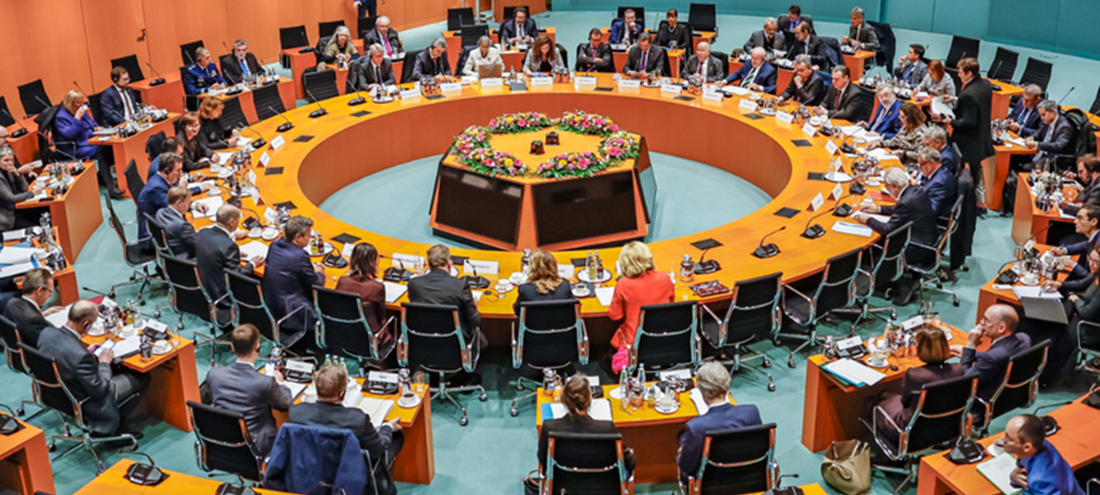
Agriculture Minister Fávaro Signs Bilateral Agreements with Germany
Dec, 06, 2023 Posted by Gabriel MalheirosWeek 202345
Advances in sustainable development were discussed in a bilateral meeting between the Brazilian Minister of Agriculture and Livestock (Mapa), Carlos Fávaro, and the German Minister of Food and Agriculture, Cem Özdemir, leading to three agreements to strengthen bilateral cooperation. The meeting took place on Monday (4) in Berlin.
During the meeting, Fávaro advocated for the sustainability of Brazilian agribusiness, emphasizing the Ministry of Agriculture and Livestock’s (Mapa) upcoming program for the recovery and conversion of low-productivity pastures. The program, set to be officially launched soon by President Luiz Inácio Lula da Silva, aims to intensify food production sustainably. Contrary to common belief, increased organic matter input into systems improves soil quality, contributing to carbon capture.
With a focus on traceable and sustainable production that avoids compromising forests, the program has already been presented by Minister Carlos Fávaro in official missions to various countries, attracting foreign investor interest.
The government proposes to incorporate an additional 40 million hectares of degraded or low-productivity pastures into the production area over the next 10 years, intensifying food production without advancing deforestation into already preserved areas and implementing practices that lead to carbon emission reduction.
According to the minister, the success of the program depends not only on Brazilian resources but also on international financing sources. He emphasized that the goals of the pasture recovery project align with Germany’s environmental policy objectives.
“Germany is a great partner for Brazil and President Lula believes we must grow closer. This is the third visit I have made to Germany and Minister Cem Özdemir this year, always with the perspective of producing quality food without neglecting environmental preservation,” highlighted the Brazilian minister.
In this regard, Özdemir pledged to support Mapa in securing resources for this program, including from the German Development Bank (KFW).
Cooperation between Brazil and Germany has been discussed and intensified since the beginning of this year when Fávaro held the first bilateral meeting with the German minister during the Global Forum for Food and Agriculture in Germany. In March, Özdemir met with Fávaro again at Mapa’s headquarters in Brasília. In October, he returned to the country to participate in Anuga, the world’s largest food fair, where negotiations began for the partnership in the pasture recovery program, aiming to intensify food production sustainably to contribute to global food security and combat climate change. Now, as part of President Lula’s delegation at the II High-Level Intergovernmental Consultations meeting with ministers from both countries, the Brazilian delegation arrived in Germany after the opening of COP 28, where Brazil reaffirmed its commitment to sustainability.
Brazil-Germany Cooperation in Agribusiness
In total, three agreements were signed during Monday’s meeting to boost sustainable development in both countries.
The extension of the memorandum of understanding establishing an Agripolitical Cooperation between Brazil and Germany was signed by the Minister of Agriculture and Livestock, Carlos Fávaro; the Minister of Agrarian Development and Family Agriculture of Brazil, Paulo Teixeira, and the Minister of Food and Agriculture of Germany, Cem Özdemir. The Agripolitical Dialogue serves as a tool for the exchange of experiences, perspectives, and public policies in the context of agribusiness development, aiming for resilience and sustainability.
In this new version, the memorandum aims to intensify bilateral cooperation to promote mutual understanding in agribusiness, exchange information on regulatory practices, and strengthen networking and support for partnerships between German and Brazilian actors in agribusiness.
Also signed by Ministers Fávaro, Teixeira, and Özdemir, along with the Minister of Science, Technology, and Innovation, Luciana Santos, and her German counterpart, the Minister of Education and Research, Bettina Stark-Watzinger, was the first Joint Declaration of Intentions in Cooperation in Bioeconomy. The agreement encourages closer ties between the two countries on the subject, including the production and research of bio-inputs, which is of great interest to Brazilian agribusiness.
The third agreement, signed by Ministers Fávaro, Cem Özdemir, the representative of the Brazilian Agribusiness Association, Ingo Plöger, and the representative of the Federation of German Industries, Rafael Haddad, deals with the extension and expansion of the Agribusiness and Innovation Cooperation initiative. The goal of this initiative is to bring together the government and the private sector to increase trade volume and investment flows in agribusiness, seeking more sustainable agricultural production models.
G20
During the bilateral meeting between the Brazilian and German ministers, Fávaro invited Özdemir to participate in the G20 agriculture ministers’ meeting, scheduled to take place in Cuiabá next year, as part of the events under Brazil’s rotating presidency in the group.
The Agriculture Working Group meeting will include technical visits to showcase different production systems to the ministers of the bloc.
High-Level Meeting
During the II High-Level Intergovernmental Consultations Brazil-Germany, with the participation of President Lula and German Chancellor Olaf Scholz, as well as ministers from both countries, agriculture was a highlight.
During the meeting, Fávaro emphasized the alignment between Germany and Brazil regarding the importance of making agriculture increasingly sustainable while respecting each country’s unique characteristics.
Business Meeting
Organized by the Federation of German Industries, the Brazil-Germany Business Meeting brought together entrepreneurs and officials from both countries, with the participation of the heads of state from both nations. In closing, President Lula provided a brief history of bilateral relations, highlighting German support for Brazilian development and the opportunities for investment and business between the two countries.
He also mentioned Brazil’s excellence in renewable energy production, including biofuels, and highlighted Mapa’s project for pasture recovery, which will intensify food production in Brazil to contribute to global food and climate security.
-
Economy
Sep, 20, 2021
0
Brazil’s trade balance surplus is up 40%
-
Economy
Sep, 05, 2023
0
Argentina records eighth consecutive monthly trade deficit with Brazil
-
Ports and Terminals
Sep, 26, 2019
0
A new chapter of the dispute for the expansion of the Port of Manaus
-
Ports and Terminals
Aug, 14, 2024
0
Porto Itapoá awarded 2024 Portos + Brasil Prize

